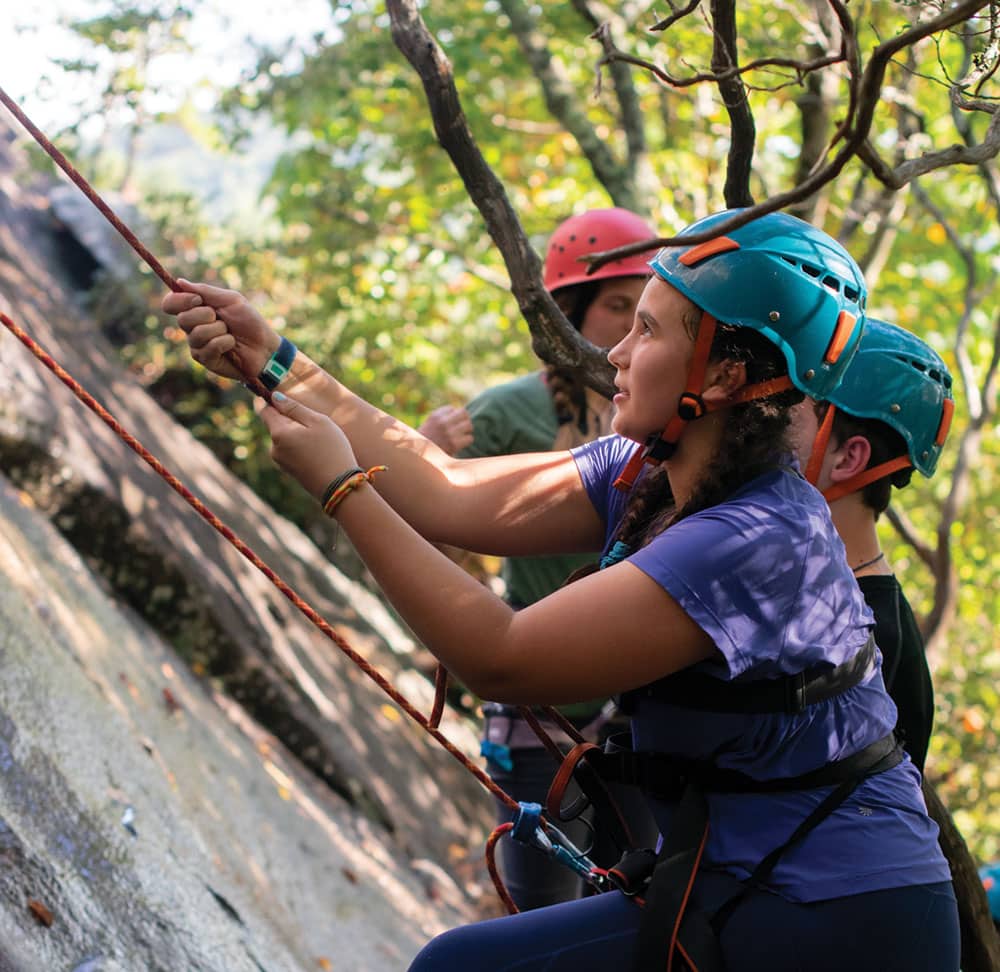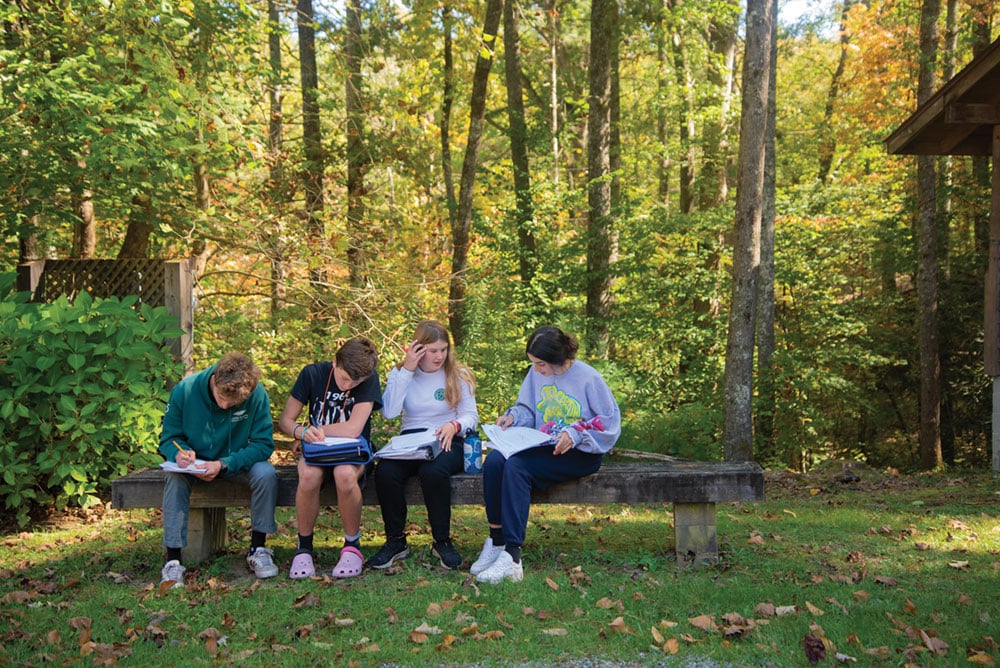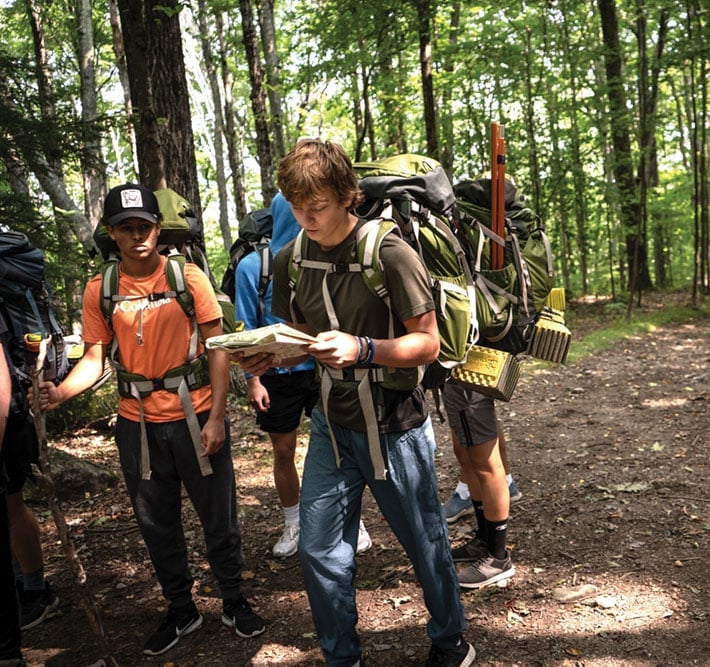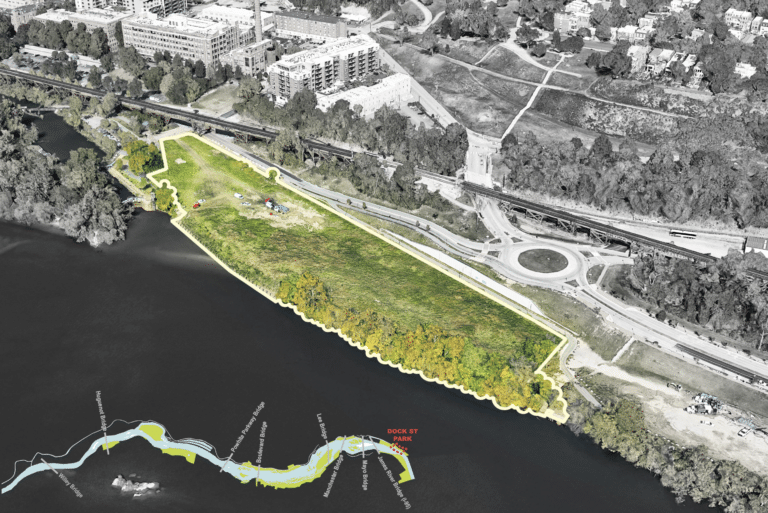It’s early February and 12 sixth graders are stepping into the snarling mouth of a 550-million-year-old beast known as Worley’s Cave.
The cavern, located in Bluff City, Tenn., will provide these kids with their first taste of spelunking. They will belly-crawl through limestone passageways, slide down red-mud embankments, and sleep under a sky of stalactites. But the goal isn’t to nurture the next generation of speleologists.
“These overnight trips are about developing character, building confidence, getting kids comfortable with the uncomfortable, and exposing them to some unique experiences that force collaboration on a different level than you can achieve in the classroom,” says Will Yeiser, co-founder of French Broad River Academy (FBRA), a private school that serves 72 middle schoolers in Asheville, N.C.

Situated on the banks of its namesake, FBRA provides students with an educational experience that is both academically rigorous and outdoor-centric. Students may study the science of water quality and then go whitewater rafting. Or, they may investigate friction and then spend a day snowboarding. Or, they may read Plato’s allegory of the cave and then, well, go explore a cave.
“Four out of five days, students are in a traditional classroom setting,” says Yeiser. “But on the fifth day, they’re out on the water or up in the mountains getting a real-world connection to their learning.”
Yeiser stands by the thinking that to truly teach kids, you have to let them venture far beyond the classroom. And he’s not alone. Up and down the East Coast, educators are challenging the convention that students learn best in desks and behind screens. Here’s a look at more Blue Ridge schools that are leading students into the wild.
Little River Outdoor School
Floyd, Va.
At Little River Outdoor School in Virginia, there is no such thing as “good” weather. “We spend all day every day outside,” says lead teacher Isabelle Porter. “There’s just as much to learn in the rain as there is in the sun.”
As a licensed outdoor elementary school, Little River is a place where young children not only learn to read, write, and count but also to tie knots, start a fire with flint, and build shelters. It’s a place where students learn to become one with the world around them.
If Little River sounds different than a typical elementary school, that’s because it is. Though traditional subjects like math and reading are still taught, students learn one-on-one with instructors so that they can go at their own pace. The curriculum is also entirely driven by curiosity; teachers model lessons based on what students want to learn.
“We are not trying to mimic a traditional school in any way,” says Porter. “Children are smart, curious people who naturally want to learn. Their academic environment should encourage those passions.”

The Outdoor Academy
Pisgah Forest, N.C.
Most students take exams to demonstrate mastery. But at The Outdoor Academy, a semester high school for 10th and 11th graders, students finish their experience with two days of solitude in the woods of western North Carolina. School director Glenn DeLaney calls this the “solo.”
“We ask them to pause and reflect on their experience,” says DeLaney. “We want students to think about what mattered to them this semester, what leadership lessons they learned, and what passions were ignited that they can pursue academically.”
For most students, there is a lot to consider. After all, they have spent the past four months following a rigorous, multidisciplinary curriculum inextricably tied to the mountains around them.
During their semester at The Outdoor Academy, students study American history through the lens of public land management, investigate biodiversity in the woods of Pisgah National Forest, and study “place” as it pertains to literature. Each cohort also goes paddling, climbing, and backpacking, even guiding an entire backcountry trip themselves.
These experiences help students grow into self-confident and self-aware young adults, says DeLaney. “Our mission isn’t about what happens here,” he explains. “It’s about what happens after.”
Blue Ridge School
Saint George, Va.
By day, Cory Woods teaches environmental science. But after class, he teaches a different subject: the science of singletrack.
Woods is a mountain biking instructor at the Blue Ridge School, a private boarding academy for high school boys. Here, just miles outside of Shenandoah National Park in Virginia, students follow a project-based curriculum designed to prepare graduates for college. But staff believes that, as much as young adults need rigorous academics, they also need time in the mountains.
That’s why instruction at the Blue Ridge School is centered around outdoor education. Each afternoon, students choose from a long list of activities: hunting, fishing, skiing, canoeing, rock climbing, and, of course, mountain biking.
While some may discredit the educational value of riding gnarly singletrack, Woods believes adventuring allows high schoolers to flex their executive functioning skills (think: planning, self-monitoring, time management) and become leaders.
“Being outside is a key part of growing into a well-rounded adult,” says Woods. “They learn from being engaged with the outdoors.”
Ivy Academy
Soddy Daisy, Tenn.
At Ivy Academy, students read, write, and grow in a 640-million-acre classroom. Each butte and valley of public land in the United States is fair game for learning. “We take every chance we can to bring our lessons outdoors,” says Emily Wiedemann, the school’s environmental education engagement specialist.
Case in point: This spring, seniors will venture nearly 2,000 miles from their public charter school in Tennessee to Grand Teton National Park for a field study. Meanwhile, younger students will adventure to other wild places like Frozen Head State Park and Rock Island State Park.
But students learn closer to home too. Thanks to Ivy Academy’s partnership with Tennessee State Parks, park rangers regularly provide instruction in outdoor-centric topics like wilderness first aid, as well as core subjects like geometry and environmental science.
The goal of these hands-on experiences is to help kids foster a “greater appreciation of natural resources,” says Wiedemann. “We want to prepare our students to be positive influences on society and the natural world.”
Cover photo: Students with the Blue Ridge School hike to Mount Rogers in Virginia. Photo by Josh Palubicki








